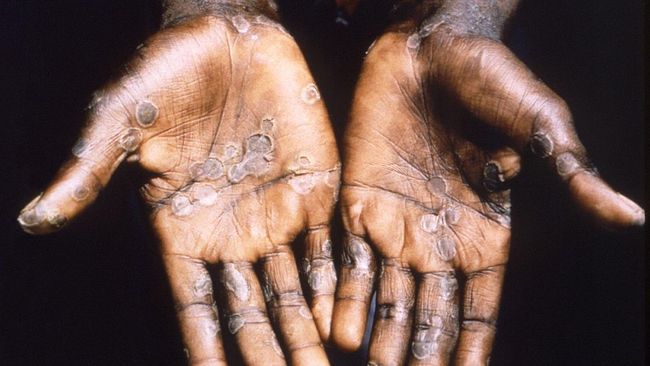Monkey poxt spread to Europe, America and Australia. The case was the first to be diagnosed in the UK and the number of confirmed cases in the country has rapidly doubled in the past two days.
Other recently confirmed cases of monkeypox have also spread to the US, Australia, Spain, Italy, Germany, France, Portugal and Sweden.
But one thing public health experts have noticed is that the vast majority of infected patients are mostly men in the gay community.
Health officials in some countries even reveal sexual transmission between men who have sex with men.
Professor Jimmy Whitworth, an infectious disease specialist at the London School of Hygiene and Tropical Medicine, told Insider that “we urgently need to find out” whether this version of monkeypox is spreading in any new way.
Before this possibility of transmission arose, transmission occurred through very close contact with an infected person. The virus can be carried on surfaces, from bedding, clothing, or respiratory excretions, but it is very easy to transmit it by skin-to-skin contact.
“You can imagine that a woman living in the same house, sharing equipment and so on with someone in direct contact could get it, but so far we haven’t seen that,” Whitworth said.
“That’s what made us kind of suspect that maybe it’s sexually transmitted, and we need to find out. Because if so, that’s new – that’s never been seen before.”
In the usual case, a monkeypox rash appears on the face, palms and bottoms of the feet. But Swedish health authorities say, in European cases, the skin problem is often reported to be localized to the genitals, groin and skin around the anus. .”
Public health experts and virologists say the focus on gay men getting monkeypox now is “unfortunately reminiscent” of some of the early reporting of HIV and AIDS 40 years ago.
“Monkeypox is not a gay disease, nor is it any other infectious disease,” virologist and doctor Boghuma Kabisen Titanji, public health researcher Keletso Makofane, said.
The notion that monkeypox is a gay disease is also unfortunate by WHO. The world health organization says that this disease is transmitted through close interactions. The WHO said in a statement that anyone who has close contact with an infectious person can be at risk of developing monkeypox.
“This includes health workers, household members and sexual partners,” the WHO said.
“Stigmatizing a group of people because of an illness is never acceptable. It can be a barrier to ending an outbreak because it can prevent people from seeking treatment, and lead to undetected spread.”
(chs)
–


